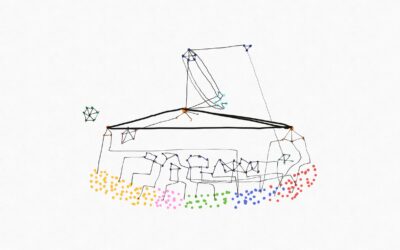In rural India, where a significant portion of agricultural land is cultivated by tenant farmers, the practice of renting farmland is illegal. As a result, tenant farmers face limitations in accessing government assistance and farming markets. However, an informal system called Rehan and Patwan has emerged. Thus enabling landowners and farmers to mortgage agricultural land in exchange for money. This blog explores the nature of this system, field experiences related to Rehan and Patwan, its connection with the Kisan Credit Card system.
What is Rehan and Patwan?
Rehan and Patwan are informal systems of mortgaging agricultural land in rural India. In the Rehan system, land is mortgaged for a specified period, and the owner repays the borrowed money to reclaim their land. Under the Patwan system, the borrowed money is not returned; instead, it is deducted from the agricultural yield production. These systems are also known by different names in various states, such as Bandhak, or Katauti.
On ground experience
During a visit to villages in Chandauli district, Uttar Pradesh, I encountered a group of women who were engaged in Rehan and Patwan arrangements. These women were mostly landless farmers or daily wage laborers. They had borrowed money from self-help groups (SHGs) to obtain mortgages on agricultural land from landowners. They practiced farming activities on these borrowed lands, cultivating crops like paddy, wheat, and vegetables. The harvested produce was solely used by the farmers themselves to meet their family’s consumption needs.
During my visit to the picturesque villages nestled in Chandauli district, Uttar Pradesh, I had the privilege of engaging in conversations with the resilient women. They have been instrumental in driving agricultural activities in the region. It was during one such interaction that I stumbled upon an intriguing aspect of their lives—their involvement in Rehan and Patwan arrangements.
As I delved deeper into their stories, I discovered that these women had found a unique pathway to pursue their farming aspirations. They had formed self-help groups (SHGs) as a means of financial support and empowerment. These groups provided them with an opportunity to access loans and embark on an unconventional journey of mortgage-based farming.
With the assistance of SHGs, these determined women borrowed funds to secure mortgages on agricultural land from local landowners. The borrowed money acted as collateral, allowing them to cultivate crops on the land they did not own. It was remarkable to witness their sheer determination and resilience as they transformed barren lands into flourishing fields teeming with life and promise.
The women farmers meticulously cultivated a variety of crops, including paddy, wheat, and a vibrant assortment of vegetables. They skillfully tended to the land, ensuring optimal growth and productivity. What struck me was the profound sense of ownership and pride they exuded, despite not possessing legal ownership of the land they cultivated.
The fruits of their labor were not merely commercial commodities; they held profound significance for the women and their families. The harvested produce was not meant for sale in the market but was solely used to nourish their own households. It was heartening to witness the deep connection these women had with the land and the sustenance it provided for their families.
Rehan and Patwan arrangements had unlocked a new world of possibilities for these women. By participating in these informal systems of mortgage-based farming, they had bypassed the limitations imposed by traditional landownership structures. They had seized the opportunity to cultivate their own sustenance and break free from the shackles of wage labor.
How are the system empowering farmers
Through Rehan and Patwan arrangements, these enterprising women had not only become self-sufficient but also empowered themselves economically and socially. They had challenged societal norms and carved out their own paths in the male-dominated agricultural sector. Their success had far-reaching implications, inspiring other women in the community to embrace their own agency and pursue their dreams.
As I bid farewell to the women farmers of Chandauli, I carried with me a renewed sense of admiration and awe. Their resilience, resourcefulness, and unwavering spirit had left an indelible mark on my journey. The Rehan and Patwan arrangements, though informal in nature, had become a beacon of hope and empowerment. Thus enabling these women to transform their lives and make a significant impact on their communities.
In conclusion, the experiences shared by the women farmers in Chandauli shed light on the transformative power of Rehan and Patwan arrangements. These informal systems have given rise to a new paradigm where landless farmers, particularly women, can engage in farming activities, cultivate their own sustenance, and reclaim agency over their lives. Their stories stand as a testament to the untapped potential and resilience present in rural communities, offering valuable insights into the future of agriculture and gender empowerment in India.
The Connection with Kisan Credit Card
The Kisan Credit Card (KCC) system, implemented by the Indian government, provides farmers with credit for agricultural purposes. While Rehan and Patwan arrangements are not directly linked to KCC. But they offer an alternative financing method for landless farmers who do not have access to formal banking channels. By borrowing from SHGs, these farmers can secure mortgages and engage in agricultural activities. Thus not relying on traditional lenders or government schemes.
Rehan, Patwan, and similar informal systems play a crucial role in rural India. Hence allowing landless farmers to engage in farming activities and preventing land from remaining barren due to financial constraints. These arrangements provide an avenue for self-sustainability and food production, as opposed to relying solely on wage labor or the division of harvests. Despite lacking legal enforceability, these practices are deeply rooted in trust and have been sustained over generations. Local communities often have more confidence in such arrangements compared to government programs or bank loans.
In conclusion, Rehan and Patwan demonstrate the ingenuity and resilience of rural communities in finding solutions to overcome legal and financial obstacles. While recognizing the need for formalization and legal protection for tenant farmers, these informal systems serve as lifelines for marginalized farmers, enabling them to cultivate land and secure their livelihoods.




0 Comments